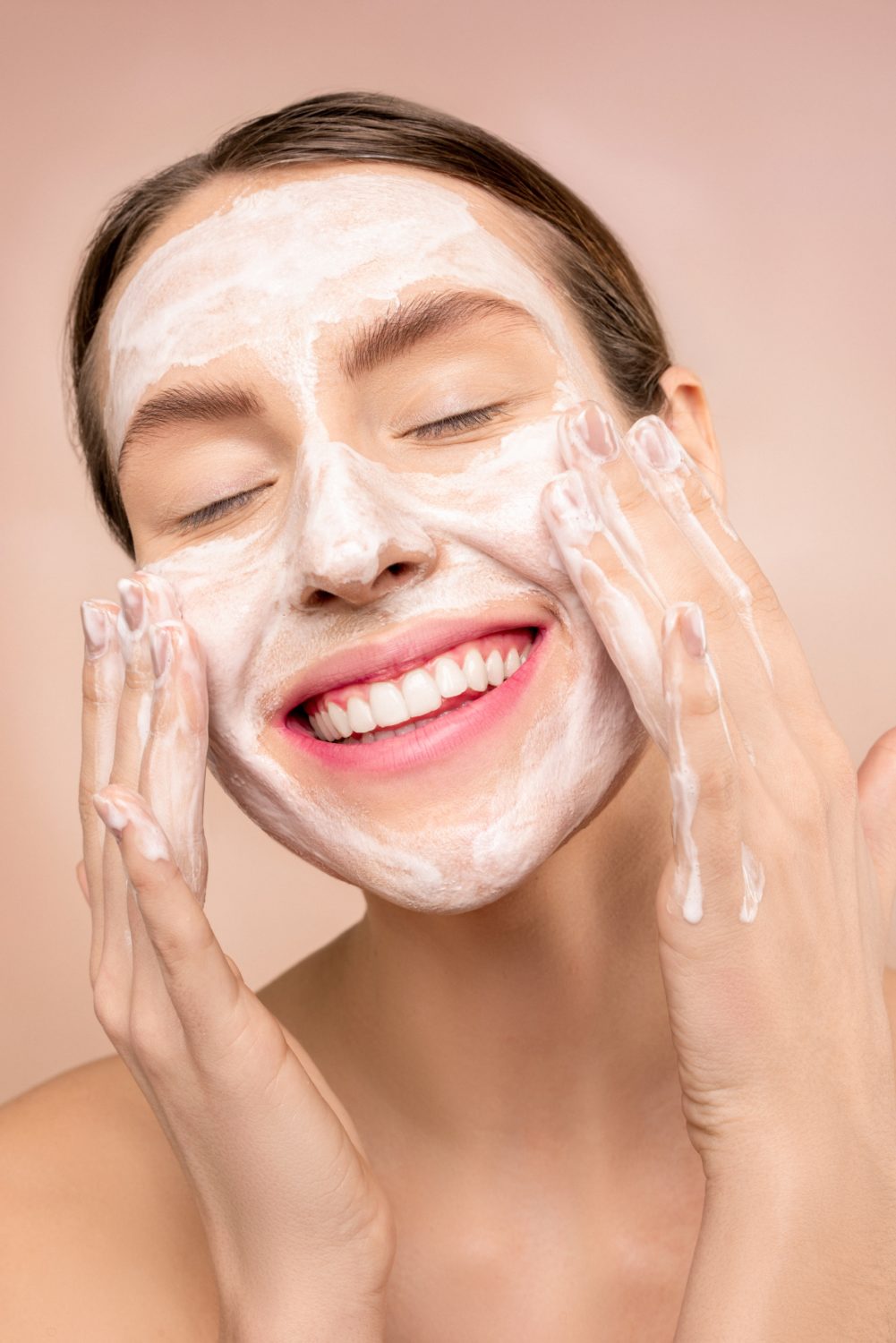
Introduction: Healthy & Glowing Skin
Skincare is an important aspect of our lives. Our skin is the first thing others see and our first line of defense. An effective routine helps prevent acne, treat wrinkles, and keep your skin looking its best. You should focus both on the routine that you follow and what substances you are using.
Many different factors can contribute to the appearance of the skin, such as genetics, diet, stress levels, and hormones. As a result, it can be difficult to pinpoint the exact cause of any given skin condition. It is important to keep in mind that the environment can also have an impact on the health of our skin. However, all is not lost, because we can adjust our routine and change which products we use to best suit our particular needs.
The basic routine that should work in most cases is simple enough. The first step in a healthy skincare routine is cleansing. You can use a face cleanser or an exfoliator to remove dirt and impurities from it. The second step is toning, which balances the pH levels of your skin. It also removes any dead cells left after the cleansing. The third step is moisturizing, which helps keep your skin hydrated so it doesn’t dry out or get pimples.
Natural Skincare Methods to Achieve Flawless Skin
It is important to note that you can use many ingredients in your skincare routine. For some people, it may be best if avoided products with chemicals or fragrances altogether, because they could irritate the skin. Give it a chance and switch to natural remedies and products.
The key is to find what works best for your skin type. If you are not sure, you can experiment with different routines until you find one that suits your needs. Change your routine or products you are using, but do it one at a time. Also, wait. Give it some time to settle and react to the new routine. Don’t expect changes overnight.
Skin Care Tips for Different Types of Skin
When it comes to skin, no two people are the same, but there are some commonalities. Certain products work better for certain types of skin than others, so it’s important to know your type before making any purchases or routine adjustments.
Oily Skin
- Wash your face – but try to avoid chemicals and don’t overdo it. Do it twice a day and use a gentle soap.
- Avoid – processed foods and foods rich in sugar. When it starts acting up reduce makeup.
- Cosmetic clay – used to absorb oils and treat some conditions. French green clay is particularly popular
- Honey – an ancient and revered remedy. It’s famous for its antibacterial and antimicrobial characteristics so it can help skin that is oily or prone to acne.
Dry Skin
- Coconut oil – it contains saturated fatty acids with emollient properties, which act as a moisturizer. They fill in gaps in dry skin and help smooth it.
- Avoid – air-conditioned spaces, bathing in very hot water, scratching, direct exposure to wind or direct heat source. These will all further dry the skin.
- Aloe Vera – it will provide relief. Feel free to apply liberally and leave overnight.
Acne
Acne is a common problem and it can be very frustrating. There are several contributing factors to acne. If you’ve tried many products and are about ready to give up – don’t just yet. Here are three ideas for you to try if you are struggling with this condition.
- Zinc – people with acne have been shown to have a lower level of zinc in their blood. Try adjusting your diet by increasing your intake of oysters, poultry, beans, nuts, breakfast cereals. Add a supplement, but mind that the recommended daily upper limit is 40mg.
- Omega-3 fatty acids – usually taken as a fish oil supplement. Omega-3 acids have been shown to decrease inflammatory factors which may reduce your risk of acne.
- Natural mask – Honey and cinnamon. Both fight bacteria and thereby reduce inflammation.
Wrinkles
There is no reason to be ashamed of getting wrinkles. Today’s beauty unattainable beauty standards frustrate even the healthiest and most beautiful among us. Here are a few simple and natural things you can try to help reduce them.
- Egg white – or even better, the membrane that separates the white from the yolk, has been shown to help by increasing the production of collagen.
- Consume olive oil – it’s been shown to increase levels of collagen, so it will smoothen your skin.
- Use a silk pillowcase – silk is hypoallergenic and is easy on the skin. What’s better – it feels nice. Win-win.
Conclusion
No matter your situation be observant and patient. Your skin may react negatively to various substances or habits. Try to change them one by one, adopt a healthy lifestyle and routine, and see what provides good relief.
The journey can be frustrating, but once you finally understand yourself you will be set for life, so don’t give up and listen to what your body is telling you – it’s for your own good.







